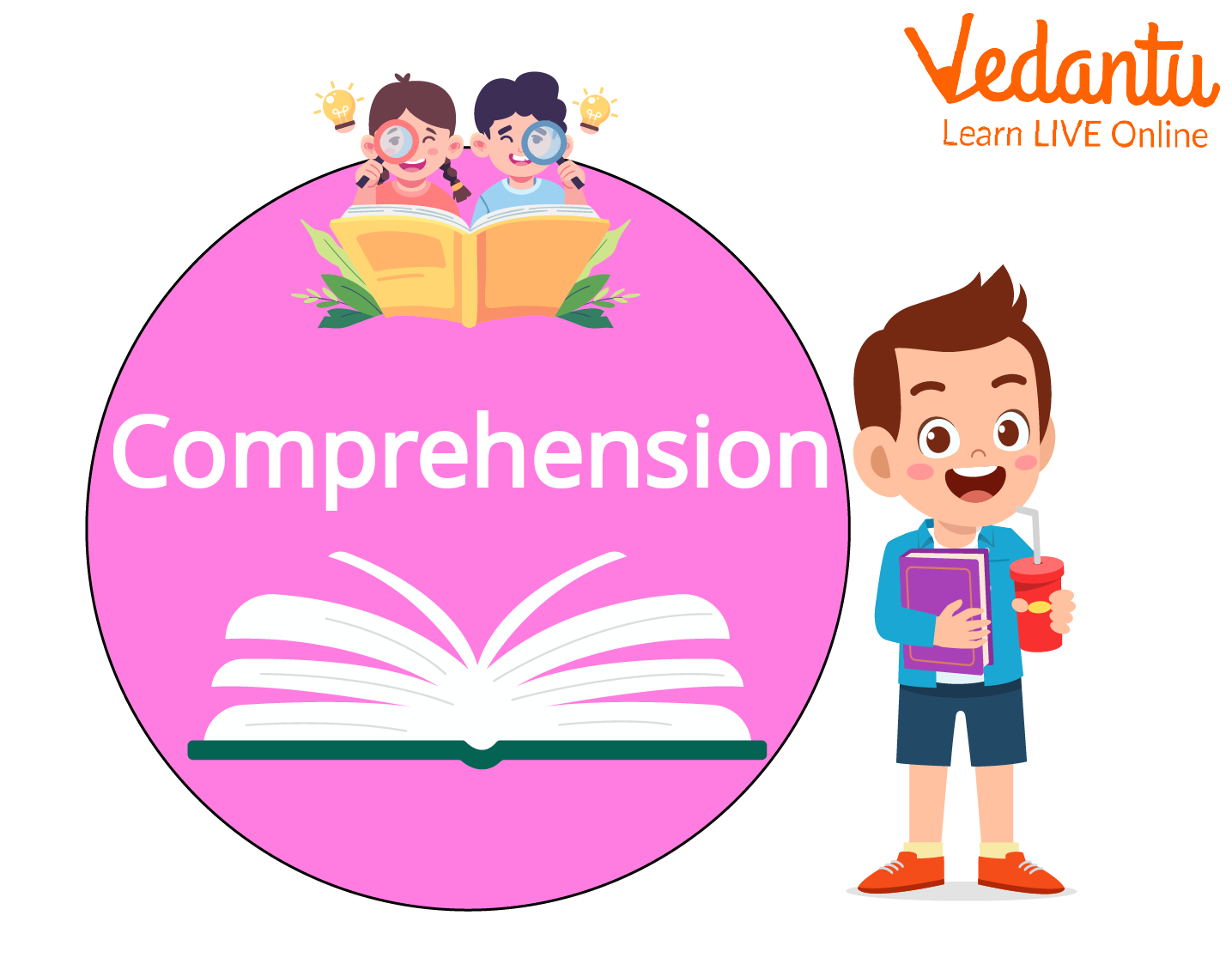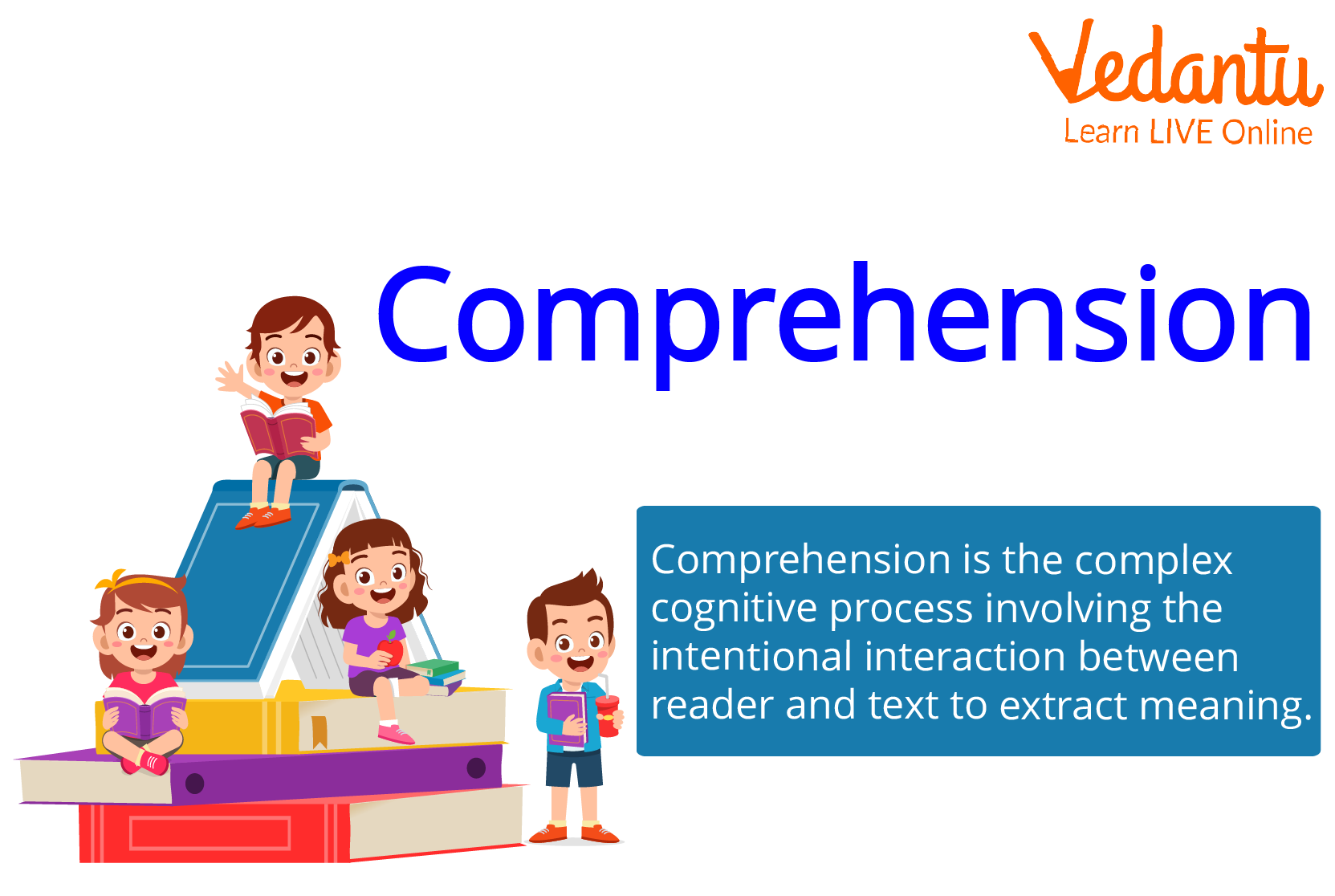Practice Questions & Tips for Comprehension Class 5 English Grammar 2025-26
FAQs on Class 5 English Grammar Comprehension: Syllabus & Practice Guide (2025-26)
1. What are the most important types of questions to expect from a comprehension passage in the Class 5 English exam?
Based on the CBSE 2025-26 syllabus, the important questions from a comprehension passage are designed to test various reading skills. You should prepare for the following types:
Factual Questions: These ask for specific information that is directly stated in the passage.
Inferential Questions: These require you to understand an idea that is implied but not explicitly written.
Vocabulary Questions: These test your knowledge of synonyms, antonyms, or the meaning of a specific word as used in the passage.
Main Idea/Title Questions: These ask you to suggest a suitable title or identify the central theme of the passage.
2. How many marks are typically allotted for the reading comprehension section in the Class 5 English paper?
While the exact breakup is mentioned in the official paper pattern released by CBSE, the reading comprehension section is a highly significant component of the Class 5 English exam. It carries substantial weightage to assess a student's reading and analytical abilities, often accounting for a major portion of the marks in the reading section.
3. Why is finding the main idea of a passage a frequently asked and important question in exams?
Finding the main idea is a crucial exam question because it demonstrates a student's ability to understand the entire passage as a whole, not just isolated facts. It tests higher-order thinking skills like summarising and synthesis. Answering this question correctly signals to the examiner a deep level of comprehension, which is why it is considered an important question for scoring well.
4. What is the best strategy to answer vocabulary-based questions from an unseen passage to get full marks?
To secure full marks on vocabulary questions, first, locate the given word in the passage. Read the entire sentence to understand its context. For a synonym, think of a word with a similar meaning that fits that specific sentence. For an antonym, think of a word with the opposite meaning. This approach ensures your answer is contextually correct, which is a key criterion for marking.
5. What is the difference between a 'factual' and an 'inferential' question, and why is knowing this important for exams?
Understanding the difference is essential for writing the right kind of answer:
A factual question asks for information that is directly written in the text. The answer can be found and quoted from the passage.
An inferential question asks you to make a logical conclusion based on the information given. The answer is not directly stated, requiring you to 'read between the lines'.
Knowing this is important because it guides your answering strategy—whether to search for an exact phrase or to use reasoning skills.
6. What are some exam tips for solving unseen passages effectively in the Class 5 English exam for 2025-26?
To excel in the unseen passage section, here are some effective exam tips:
Read the Questions First: Quickly go through the questions before reading the passage. This helps you focus on finding specific answers.
Active Reading: Read the passage carefully, underlining key information like names, dates, places, and important facts with a pencil.
Time Management: Allocate a fixed amount of time for the comprehension section and try to stick to it to ensure you can complete the rest of the paper.
Use Your Own Words: For inferential questions, try to frame the answers in your own words to show genuine understanding.
7. How can practising different types of passages help in scoring higher marks in comprehension?
Practising diverse passages (like stories, factual articles, or descriptions) is a vital exam preparation strategy. It exposes you to different writing styles, vocabulary, and question formats. This variety builds your mental flexibility and improves your speed and accuracy. When you face an unfamiliar passage in the exam, you will be better equipped to understand its structure and answer the questions confidently, leading to higher marks.
8. Are picture-based comprehension questions considered important for the Class 5 exam?
Yes, according to the latest CBSE guidelines focusing on competency-based education, picture-based comprehension is an important format. These questions assess a student's observational skills and ability to interpret visual information. You may be asked to describe what is happening, infer emotions of characters, or predict the next event. Practising these is crucial for a complete preparation for the Class 5 English exam.



















